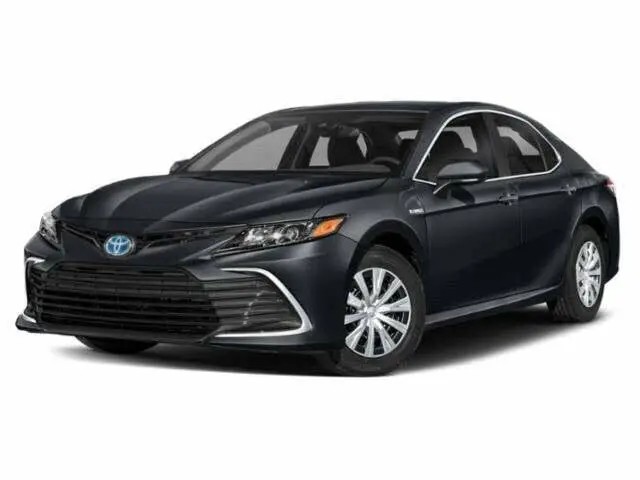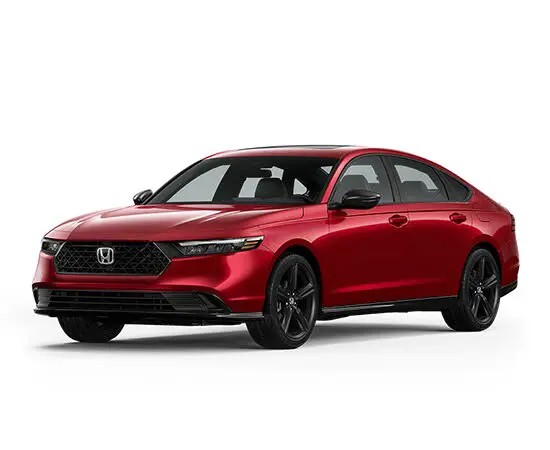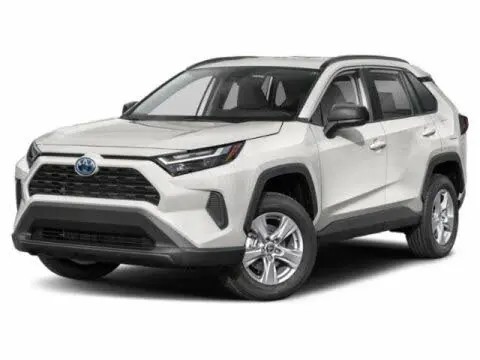In an era where environmental consciousness and economic prudence go hand in hand, the quest for fuel-efficient vehicles has never been more critical. As concerns about carbon footprints escalate and fuel costs continue their unpredictable dance, choosing a car that sips fuel rather than guzzles it is not just a financially sound decision—it’s an environmentally responsible one. This article delves into the realm of fuel efficiency, spotlighting the top cars boasting the best gas mileage in 2024. We’ll navigate through various vehicle categories, highlighting models that excel in fuel economy, affordability, and the features that set them apart in a competitive automotive landscape.
Decoding Fuel Efficiency: MPG and Beyond
Fuel efficiency, at its core, is a measure of how effectively a vehicle converts the energy stored in fuel into motion. It’s commonly expressed as miles per gallon (MPG) in the United States, indicating how many miles a car can travel on one gallon of gasoline. In other parts of the world, liters per kilometer (LPK) might be used, representing the amount of fuel needed to travel a kilometer. Regardless of the unit, the principle remains the same: a higher MPG or a lower LPK signifies greater fuel efficiency, translating to fewer trips to the gas station and more money in your pocket. Understanding this fundamental concept is the crucial first step in selecting a vehicle that aligns with both your budget and environmental values.
Why Gas Mileage is More Important Than Ever
The significance of excellent gas mileage extends far beyond personal finances. Opting for a car with superior fuel economy yields a multitude of benefits. Firstly, and perhaps most immediately felt, is the substantial reduction in fuel expenses. Over the lifespan of a vehicle, the savings from choosing a high MPG model can accumulate to thousands of dollars, freeing up funds for other priorities. Secondly, fuel efficiency plays a pivotal role in environmental stewardship. Cars with better gas mileage burn less fuel, directly translating to lower carbon dioxide emissions. This reduction in emissions contributes to cleaner air, a healthier environment, and a collective step towards mitigating climate change. Furthermore, in a world of volatile fuel prices, owning a car with exceptional gas mileage provides a buffer against economic uncertainties, offering a degree of financial stability and predictability in your transportation budget.
The Science of MPG: How Fuel Efficiency is Measured
Determining a vehicle’s fuel efficiency is not left to guesswork. It’s a rigorous process conducted through standardized testing designed to mimic real-world driving conditions. These tests, typically administered by regulatory bodies like the Environmental Protection Agency (EPA) in the U.S., involve simulations of both city and highway driving scenarios. City driving tests capture stop-and-go traffic, lower speeds, and idling, while highway tests assess fuel economy at consistent, higher speeds. The EPA and similar organizations worldwide establish strict protocols for these tests to ensure accuracy, consistency, and comparability across different vehicle models. The resulting MPG ratings provide consumers with a reliable benchmark for comparing fuel efficiency and making informed purchasing decisions.
Beyond the inherent capabilities of a vehicle, driving habits and maintenance practices exert a considerable influence on real-world fuel efficiency. Aggressive driving behaviors, such as rapid acceleration, hard braking, and excessive speeding, can dramatically decrease MPG. Conversely, adopting smoother driving techniques—gentle acceleration, anticipating stops, and maintaining a steady speed—can significantly improve fuel economy. Regular vehicle maintenance is equally vital. Routine tune-ups, ensuring tires are properly inflated, and using the manufacturer-recommended grade of motor oil all contribute to optimal engine performance and fuel efficiency. By being mindful of both driving style and vehicle upkeep, drivers can unlock the full fuel-saving potential of their cars and minimize their environmental impact.
Key Factors Influencing Fuel-Efficient Car Choices
Selecting a fuel-efficient car involves considering several interconnected factors. Understanding these elements empowers you to make a choice that aligns perfectly with your individual needs, driving habits, and environmental considerations.
Vehicle Size and Class: The Efficiency Scale
The size and type of vehicle you choose are primary determinants of its fuel efficiency. Generally, smaller, lighter vehicles inherently require less energy to move and thus achieve better gas mileage than their larger, heavier counterparts. For individuals primarily commuting alone or with a passenger or two, compact cars or even smaller subcompact models often represent the sweet spot of fuel efficiency. Hybrid vehicles, which combine a gasoline engine with an electric motor, further enhance fuel economy in these smaller classes. However, if your needs dictate more passenger space, cargo capacity, or the ability to tow, midsize cars or SUVs become necessary. In these larger vehicle classes, advancements in engine technology and hybrid powertrains are increasingly available, allowing for improved fuel efficiency without sacrificing space or utility.
Engine Technology and Powertrains: The Heart of Efficiency
The type of engine and the technology it employs are fundamental to a car’s fuel economy. Hybrid electric vehicles (HEVs) and plug-in hybrid electric vehicles (PHEVs) have revolutionized fuel efficiency by seamlessly integrating electric power with traditional gasoline engines. HEVs utilize regenerative braking and electric motors to supplement gasoline power, particularly at lower speeds and during stop-and-go driving, dramatically improving MPG. PHEVs offer larger batteries and plug-in charging capability, extending electric-only driving range and further reducing gasoline consumption. Beyond hybrids, advancements in conventional internal combustion engines (ICEs) have also yielded significant gains in fuel efficiency. Technologies like turbocharging, direct fuel injection, and variable valve timing optimize engine performance, delivering more power from less fuel. The choice between hybrid, plug-in hybrid, or advanced gasoline engines depends on individual driving patterns, access to charging infrastructure, and desired balance between fuel economy and performance.
Driving Style and Conditions: Real-World MPG
Real-world fuel efficiency is not solely determined by the car itself; driving habits and typical driving conditions play a crucial role. Aggressive driving—characterized by hard acceleration, abrupt braking, and high speeds—significantly reduces MPG. Conversely, smooth, anticipatory driving maximizes fuel economy. Maintaining a steady speed, avoiding unnecessary acceleration and deceleration, and looking ahead to anticipate traffic flow are key techniques. Driving conditions also impact fuel efficiency. Stop-and-go city traffic inherently lowers MPG compared to steady highway cruising. Hilly terrain and rough roads can also reduce fuel economy due to increased engine load. Considering your typical commute, driving environment, and being mindful of driving style are essential for achieving the best possible gas mileage in everyday driving.
Aerodynamics and vehicle weight are often overlooked but are critical factors in fuel efficiency. A car’s shape and design dictate how easily it moves through the air. Sleek, streamlined designs minimize air resistance, allowing the car to maintain speed with less engine effort and fuel consumption. Automakers invest heavily in wind tunnel testing to refine vehicle aerodynamics. Similarly, vehicle weight directly impacts fuel economy. Heavier vehicles require more energy to accelerate and maintain momentum. The automotive industry is increasingly utilizing lightweight materials like aluminum and high-strength steel in vehicle construction to reduce weight without compromising safety, thereby boosting fuel efficiency.
 Aerodynamic design and lightweight materials are key to maximizing fuel efficiency in modern vehicles.
Aerodynamic design and lightweight materials are key to maximizing fuel efficiency in modern vehicles.
The Horizon of Fuel Efficiency: Innovations and Trends
The automotive industry is in constant motion, propelled by the relentless pursuit of enhanced fuel efficiency and reduced emissions. Several transformative trends are shaping the future landscape of fuel economy in cars.
Technological Leaps in Fuel Efficiency
Automakers are engaged in a continuous race of innovation to improve fuel efficiency. This drive encompasses advancements across multiple fronts: refining internal combustion engine technology, developing lighter and stronger vehicle materials, optimizing aerodynamic designs, and expanding the integration of electric and hybrid powertrains. We can anticipate future car models to feature even more sophisticated engine management systems, advanced lightweight composites, active aerodynamic elements that adjust to driving conditions, and increasingly efficient hybrid and electric drive systems. Beyond incremental improvements, the industry is also exploring disruptive technologies like hydrogen fuel cells and advanced biofuels as potential game-changers in sustainable transportation. These innovations promise to further reduce our reliance on fossil fuels and pave the way for a greener automotive future.
The Role of Regulations and Consumer Behavior
Government regulations and evolving consumer preferences are powerful forces driving the push for fuel efficiency. Increasingly stringent emissions standards imposed by regulatory bodies worldwide are compelling automakers to develop and market more fuel-efficient vehicles. These regulations often mandate progressively higher MPG targets and incentivize the adoption of cleaner technologies. Simultaneously, growing environmental awareness among consumers is fueling demand for fuel-efficient and eco-friendly vehicles. Consumers are not only seeking to save money at the pump but are also increasingly factoring in the environmental impact of their vehicle choices. This convergence of regulatory pressure and consumer demand creates a strong impetus for continued innovation and adoption of fuel-efficient technologies in the automotive sector. International collaborations and agreements on climate change further amplify this trend, setting ambitious global targets for reducing greenhouse gas emissions from transportation and reinforcing the importance of fuel efficiency as a key strategy in combating climate change.
Top Picks for Fuel Sippers: Best Gas Mileage Cars of 2024
Now, let’s spotlight the stars of fuel efficiency: the top cars for 2024 that excel in gas mileage. We’ve categorized them into popular segments: compact cars, midsize cars, and SUVs, catering to diverse needs and preferences.
Compact Cars Leading the MPG Chart
Toyota Prius: The Toyota Prius remains the gold standard in fuel efficiency. A hybrid pioneer, the Prius consistently delivers exceptional gas mileage, blending impressive fuel economy with a comfortable interior and hatchback versatility. It’s an ideal choice for eco-conscious drivers seeking maximum MPG without sacrificing practicality.
Honda Civic: The Honda Civic, a perennial favorite, combines a reputation for reliability with impressive fuel efficiency. Known for its efficient engine options and aerodynamic design, the Civic offers excellent MPG in a stylish and fun-to-drive package.
 The Honda Civic, a stylish and fuel-efficient compact car, is a great option for daily commuting and weekend trips.
The Honda Civic, a stylish and fuel-efficient compact car, is a great option for daily commuting and weekend trips.
Hyundai Ioniq: The Hyundai Ioniq stands out with its diverse powertrain lineup, offering hybrid, plug-in hybrid, and all-electric versions. All Ioniq models prioritize fuel efficiency, providing exceptional MPG and a comfortable, well-equipped cabin.
Volkswagen Golf: The Volkswagen Golf, while known for its sporty driving dynamics, also offers commendable fuel efficiency. Equipped with efficient turbocharged engines, the Golf strikes a balance between performance and MPG, appealing to drivers who value both.
 The Volkswagen Golf, known for its blend of performance and efficiency, offers a fun-to-drive experience with impressive gas mileage.
The Volkswagen Golf, known for its blend of performance and efficiency, offers a fun-to-drive experience with impressive gas mileage.
Mazda 3: The Mazda 3 distinguishes itself with its premium design, engaging driving dynamics, and surprisingly good fuel efficiency. The Mazda 3 proves that fuel economy doesn’t have to come at the expense of style and driving enjoyment.
Midsize Sedans: Efficient Family Haulers
Toyota Camry Hybrid: The Toyota Camry Hybrid reigns supreme in the midsize sedan category for fuel efficiency. Combining Toyota’s renowned hybrid technology with the Camry’s spaciousness and comfort, the Camry Hybrid delivers exceptional MPG without compromising on practicality or refinement.
 The Toyota Camry Hybrid, a leader in fuel efficiency among midsize sedans, offers a spacious interior and excellent MPG.
The Toyota Camry Hybrid, a leader in fuel efficiency among midsize sedans, offers a spacious interior and excellent MPG.
Kia K5 Hybrid: The Kia K5 Hybrid, formerly known as the Optima Hybrid, offers a compelling blend of fuel efficiency, stylish design, and modern features. The K5 Hybrid provides excellent MPG in a visually appealing and well-equipped midsize package.
Honda Accord Hybrid: The Honda Accord Hybrid mirrors the Camry Hybrid in offering exceptional fuel economy in a spacious and comfortable midsize sedan. The Accord Hybrid combines Honda’s hybrid expertise with the Accord’s practicality and refined driving experience.
 The Honda Accord Hybrid, another top contender in the midsize segment, balances fuel efficiency with comfort and a suite of modern features.
The Honda Accord Hybrid, another top contender in the midsize segment, balances fuel efficiency with comfort and a suite of modern features.
SUVs: Efficient Utility Vehicles
Ford Escape Hybrid: The Ford Escape Hybrid caters to SUV buyers seeking fuel efficiency without sacrificing versatility. The Escape Hybrid delivers impressive MPG for an SUV, offering a practical and eco-conscious choice for families and adventure-seekers.
Toyota RAV4 Hybrid: The Toyota RAV4 Hybrid extends Toyota’s hybrid leadership into the popular SUV segment. The RAV4 Hybrid provides exceptional fuel economy for an SUV, combining practicality, all-weather capability (with available AWD), and impressive MPG.
 The Toyota RAV4 Hybrid, a fuel-efficient SUV, offers practicality and all-weather capability without compromising on gas mileage.
The Toyota RAV4 Hybrid, a fuel-efficient SUV, offers practicality and all-weather capability without compromising on gas mileage.
Lexus UX Hybrid: The Lexus UX Hybrid brings luxury and fuel efficiency together in a compact SUV format. The UX Hybrid provides a premium driving experience with excellent MPG, appealing to buyers seeking both refinement and fuel economy in a smaller SUV.
Maximizing Your MPG: Driving and Maintenance Tips
Owning a fuel-efficient car is a great start, but maximizing your savings and minimizing your environmental footprint requires proactive steps in maintenance and driving habits.
Essential Maintenance for Peak MPG
Regular maintenance is paramount to maintaining optimal fuel efficiency throughout your car’s life. Ensure your tires are always inflated to the recommended pressure—proper inflation reduces rolling resistance and improves MPG. Adhere to the manufacturer’s recommended schedule for oil changes, as fresh, clean oil reduces engine friction. Regularly replace air filters to ensure optimal airflow to the engine. Following the recommended service schedule for tune-ups and other maintenance items will keep your engine running efficiently and maximize fuel economy. As a car repair expert, I emphasize that preventative maintenance is the key to long-term fuel efficiency and vehicle reliability.
Smart Driving Habits for Fuel Savings
Adopting fuel-conscious driving habits can significantly boost your car’s MPG. Avoid excessive idling—if you’re stopped for more than a minute, turn off the engine. Utilize cruise control on highways to maintain a steady speed and minimize fuel waste from speed fluctuations. Minimize air conditioning use when possible, as AC compressors can draw significant power from the engine, reducing MPG. Plan your trips efficiently, combining errands into single outings to reduce cold starts, which are less fuel-efficient. Reducing unnecessary weight in your vehicle also helps—remove items from your trunk or cargo area that you don’t regularly need. Smooth, gradual acceleration and deceleration are key to fuel-efficient driving, minimizing wasted energy.
Conclusion: Choosing the Right Fuel-Efficient Car for You
In conclusion, the 2024 automotive market offers a compelling array of fuel-efficient vehicles across various categories. From compact cars like the Toyota Prius and Honda Civic to midsize sedans like the Toyota Camry Hybrid and Honda Accord Hybrid, and SUVs like the Toyota RAV4 Hybrid and Ford Escape Hybrid, there’s a fuel-sipping option for diverse needs and preferences. When selecting the best gas mileage car for you, consider your individual requirements, budget, driving style, and environmental priorities. Choosing a fuel-efficient vehicle is not just a smart financial move; it’s a positive step towards a more sustainable and environmentally responsible future. By combining a fuel-efficient car with mindful driving and diligent maintenance, you can maximize your savings and minimize your impact on the planet.